With the new Pixar film arriving on the Disney+ streaming service on Friday, March 11, Vital Thrills got a chance to talk to the Turning Red cast and crew.
Participating in the press day were writer/director Domee Shi, writer Julia Cho, and producer Lindsey Collins, as well as Turning Red cast members Sandra Oh (Ming), Rosalie Chiang (Mei Lee), Ava Morse (Miriam), Heyin Park (Abby), and Maitreyi Ramakrishnan (Priya).

In the film, Mei Lee, a young girl living in Toronto, Canada, has found out a secret. As she goes through puberty, strong emotions (which happen all the time) turn her into a giant red panda.
She must discover a way to deal with this, as well as a family secret that has spanned generations.
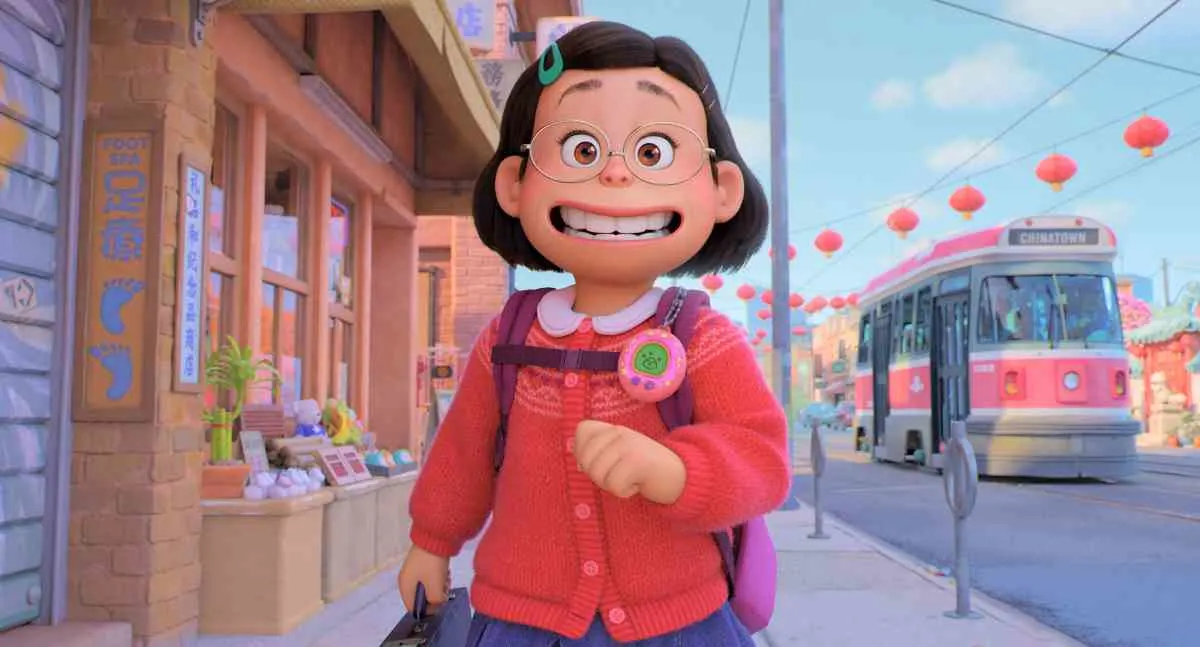
Sandra Oh spoke about her character and how she relates to her daughter, Mei. “I play Ming, Mei’s mother who is, I’d like to call her a hypervigilant, loving mother,” she laughed. “We basically go through this change in our relationship where a natural change between mothers and daughters, when daughters have to become their own independent people.”
Chiang said of Mei, “She is a 13-year-old Chinese Canadian who’s confident, she’s ambitious, and she’s a little dorky and a bit of an overachiever, but she puts so much value in her friendships and her relationship with her mom. In this movie, she goes through these huge changes and deals with them. But at the same time, she has all these things in her life, but she doesn’t want to lose herself as well.”
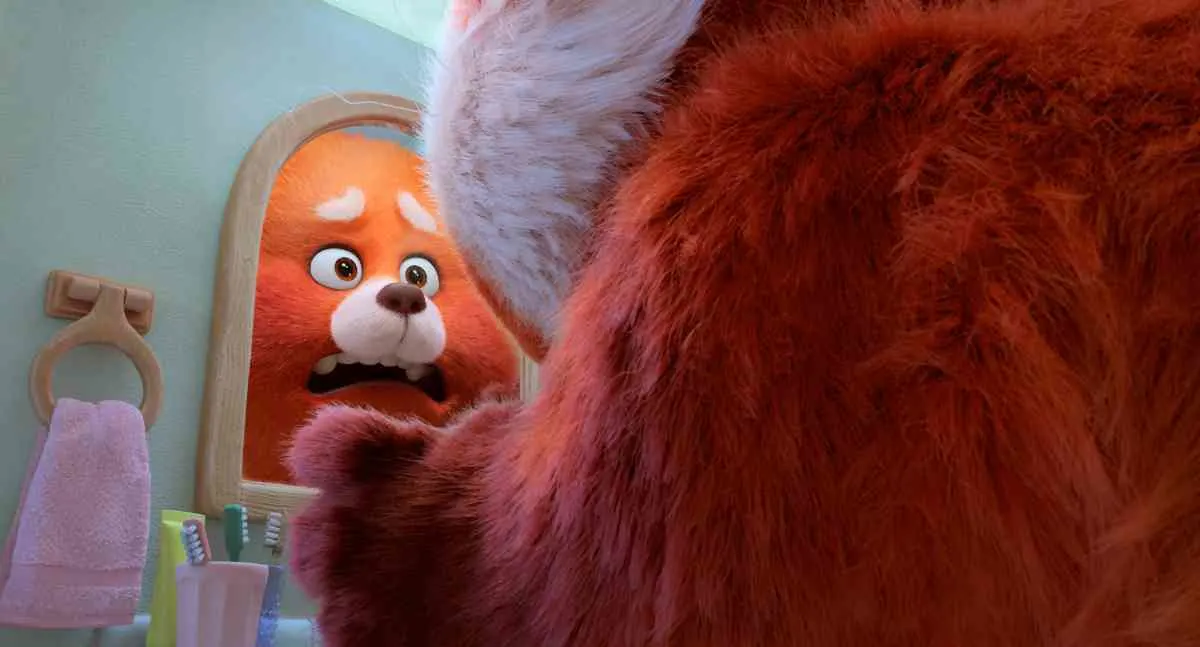
Chiang joked about her own family and said, “For me, after watching the movie, my mom and I kind of looked at each other like, ‘This is really similar.’ It’s like, there’s so many odd, like really weird coincidences. First of all, my mom’s middle name is Ming. There’s no way they could have known that. That’s creepy.
“My favorite animals are actually red pandas. Before the whole project even started, before I was introduced. But the main thing is that my mom actually called me Mei-Mei before the project because Mei-Mei means little sister in Chinese.
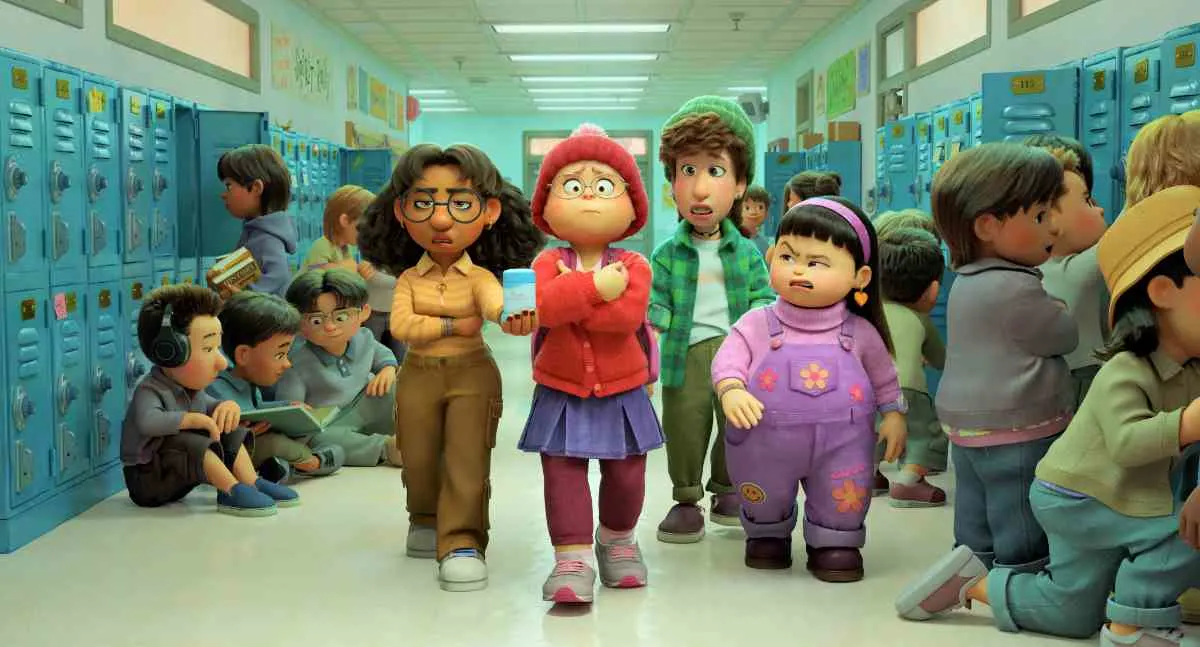
“When it came to a point where everyone called me Mei-Mei, even the people who are younger than me, which you’re not supposed to do. And so just, when she goes, ‘I’m perfect little Mei-Mei,’ I’m like, hey, that’s — I literally went through that where it’s like, ‘I don’t want to be this perfect little Mei-Mei either.”
Morse said of Miriam, “I’m currently a high school student, and everybody is just growing and changing together. And it can be very stressful and dark at times because everyone is going through a lot, and not everyone knows how to handle it.
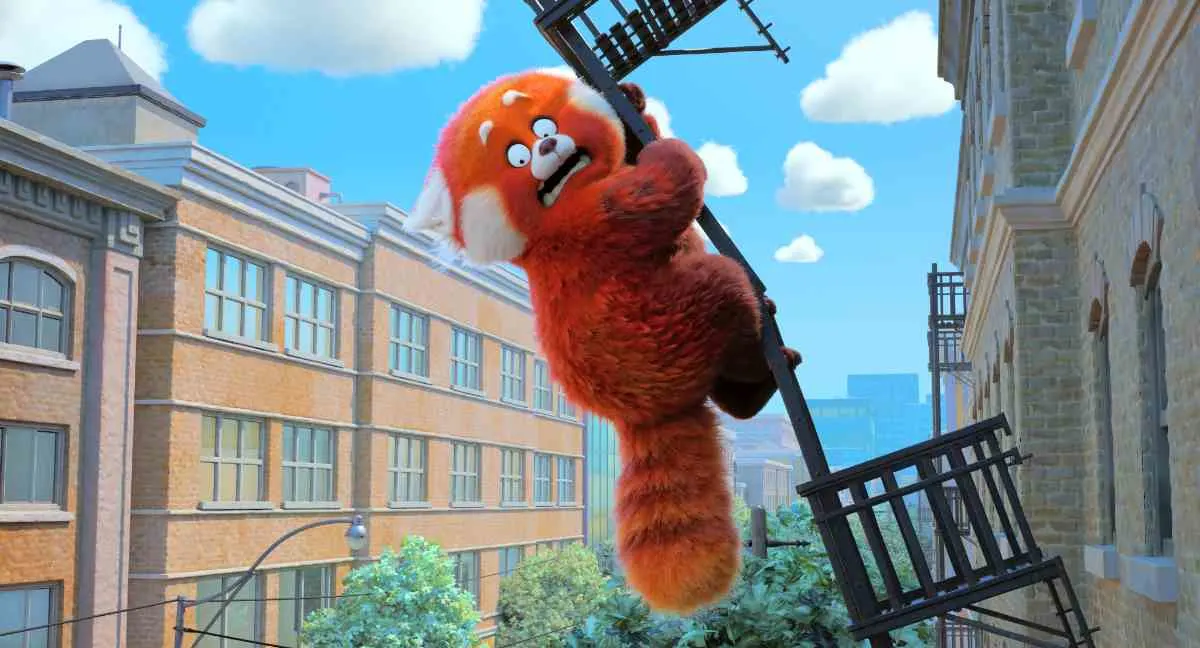
“But at the same time, it’s kind of a beautiful thing ’cause everybody’s in that together and just kind of put it all into living their lives the best they can, and I think that’s great. And all my friends mean so much to me. And they’re all very supportive no matter what.
“I think I was really inspired by my own friends kind of putting them into Miriam herself, ’cause she is such a supportive, an amazing friend to Mei-Mei and the other girls. But, because my friends are so supportive and always there for you no matter what. So that was really cool to kinda give back in that way.”
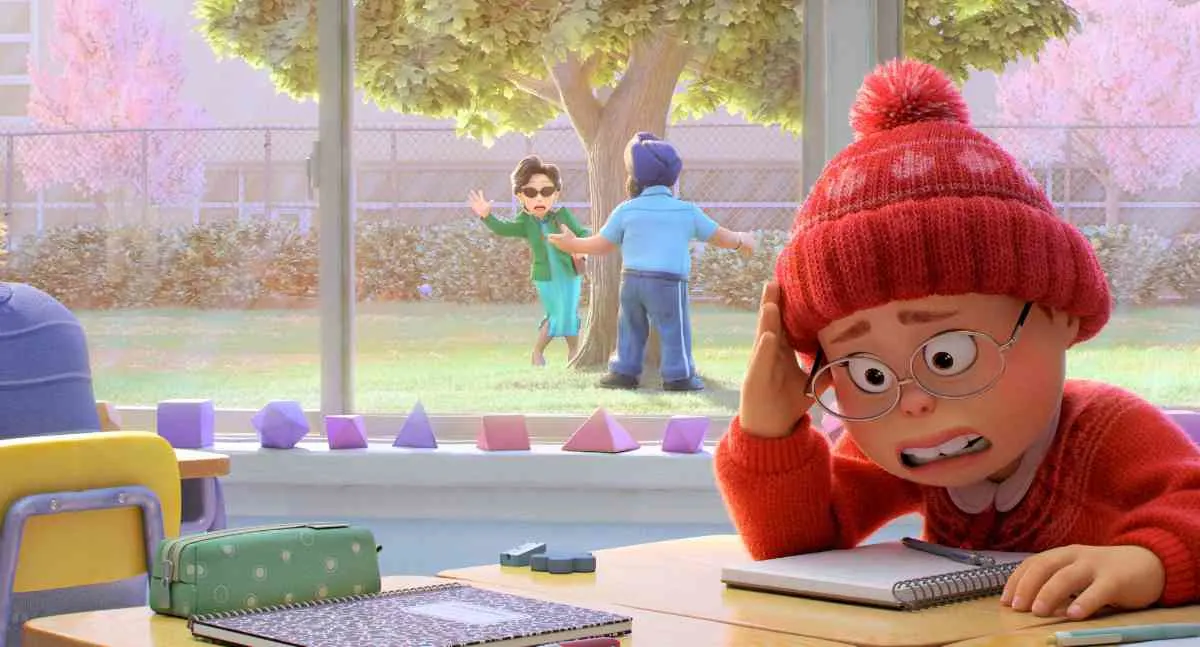
Ramakrishnan said of her character, “I remember, and it’s going to be very Canadian of me, but I remember going into grade nine, going into high school. The summer I went to my first concert to see Marianas Trench, and I lost my mind. I have always wondered why people cry at concerts. Like, shouldn’t you be excited to be there? Like, you would be smiling. Maybe laughing. Who knows? But then, as soon as they came out on stage, bawling. I was done.”
Park said that she’s older than the rest of the girls, but she immigrated to Canada at the age when she would be into boy bands as the girls are in the film. “I lost out on it because I was busy learning the language, actually.”
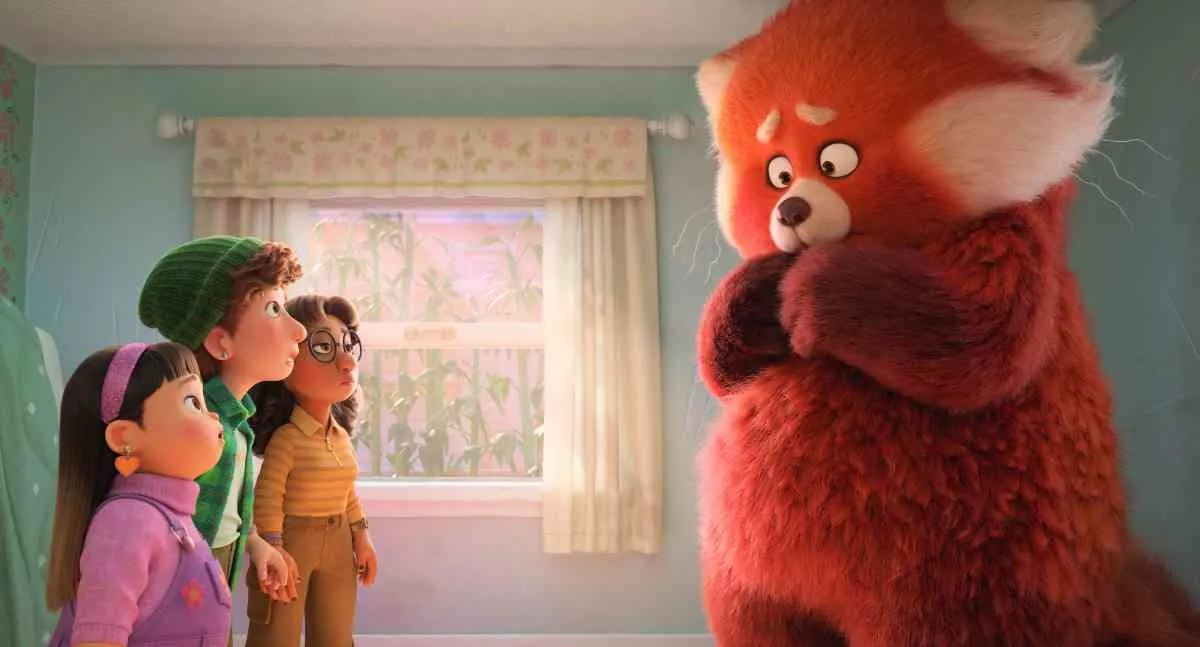
Director Domee Shi talked about the inspiration behind Turning Red, “[it] just came from my own life growing up in the early aughts. Chinese Canadian, dorky, sassy, nerdy girl who thought she had everything under control. She was her mom’s good little girl, and then boom, puberty hit, and I was bigger.
“I was hairier. I was hungry all the time. I was a hormonal mess. And I was fighting with my mom, like, every other day… making this film was kind of my chance to go back to that time, and with Julia, back to that time for both of us and understand and excavate what was happening back there.”
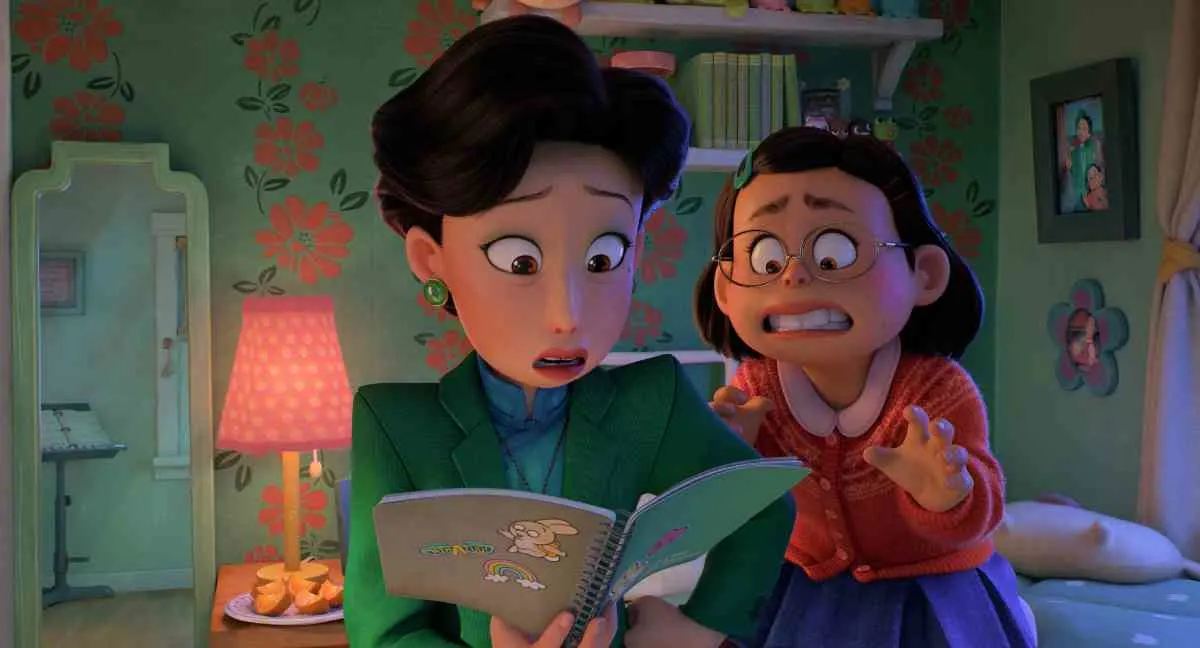
Shi said of the “chunky cute” style of animation, “That was coined by Rona Liu, our production designer. [She’s] super talented, I worked with her on Bao. And she’s also Chinese-American, as well. We just love the chunky, cute aesthetic.
“You saw it on Bao, and we wanted to show it kind of again-or explore it again with this film because it just felt like the perfect style to tell this story about this girl and really show the world through her eyes, right? Like, how does she see the world? How does she see people? It’s just really making the world feel like it was designed by a 13-year-old girl. So that’s kind of how we-we coined that chunky cute style.”
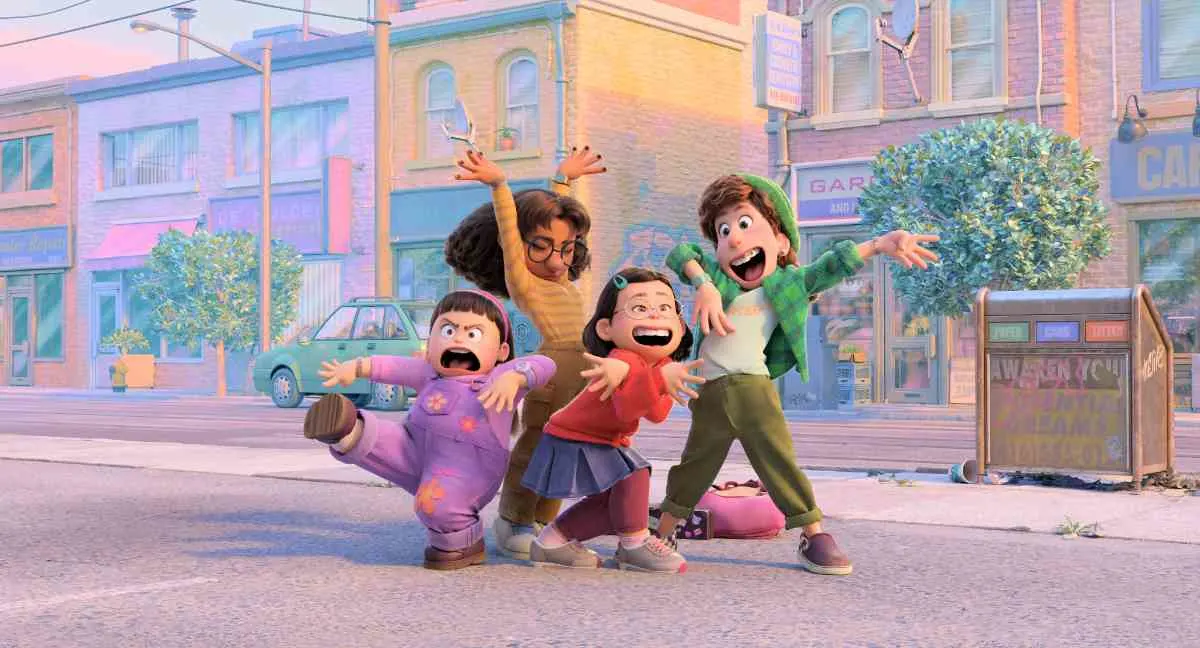
Collins spoke about the Canadian setting, saying, “Canadian pride is real, man. I’m like, wow, who knew it was going to inspire such… we have a ton of Canadians who work at Pixar, and obviously, who is on the crew… and then obviously our cast was like… they started talking Mad Libs about Toronto,” she laughed.
Cho said of the film, “It was really just a joy to be able to embrace all of my own self in the writing of this, and having a partner, two partners, who loved it. You know, we would always encourage, I think, each other to just bring more and more of ourselves into it.”
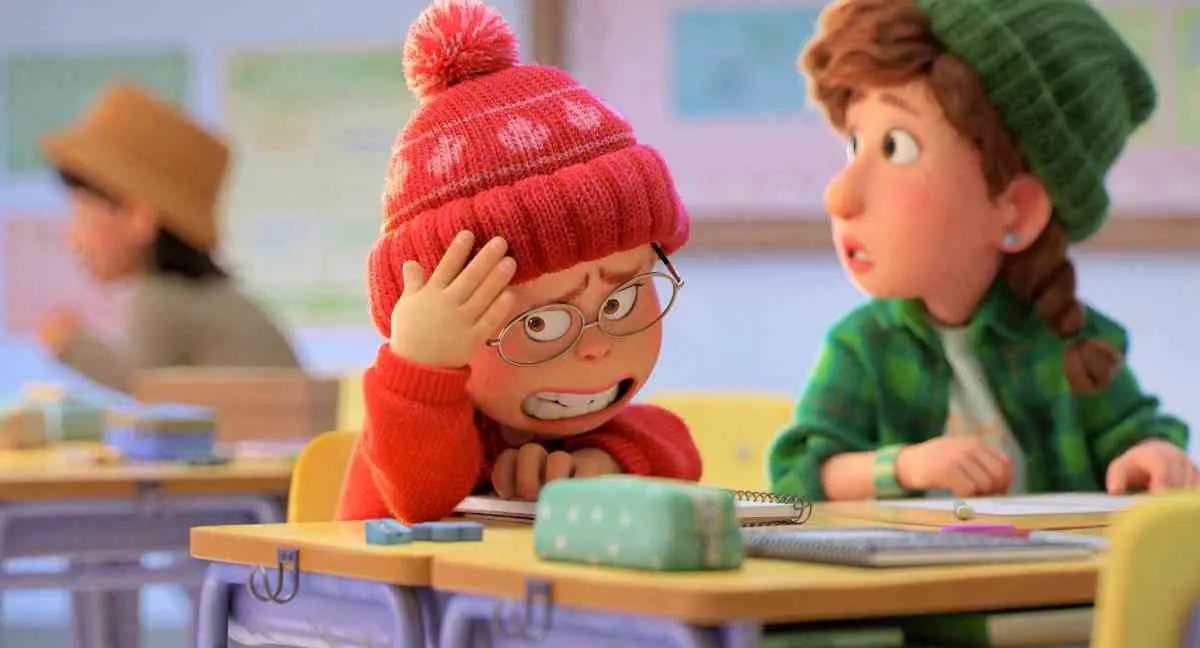
She added: “One of the things that Domee and I really connected on, I think pretty early, was the fact that we both grew up really tight with our moms. I mean, I think, in a way, that was just beyond culture, beyond anything. It was just the way we personally developed these relationships with two women who are just very strong in very different ways.
“I think that for us, the story was also, in just that sense of that transition from going from a girl whose mom, like, is your whole world, to a young woman who’s trying to learn to be independent, and how scary that is.”
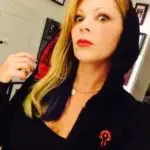
Jenna Busch has written and spoken about movies, TV, video games, and comics all over the Internet for over 15 years, co-hosted a series with Stan Lee, appeared on multiple episodes of “Tabletop,” written comic books, and is a contributing author for the 13 books in the “PsychGeeks” series including “Star Wars Psychology.” She founded the site Legion of Leia and hosted the “Legion” podcast.